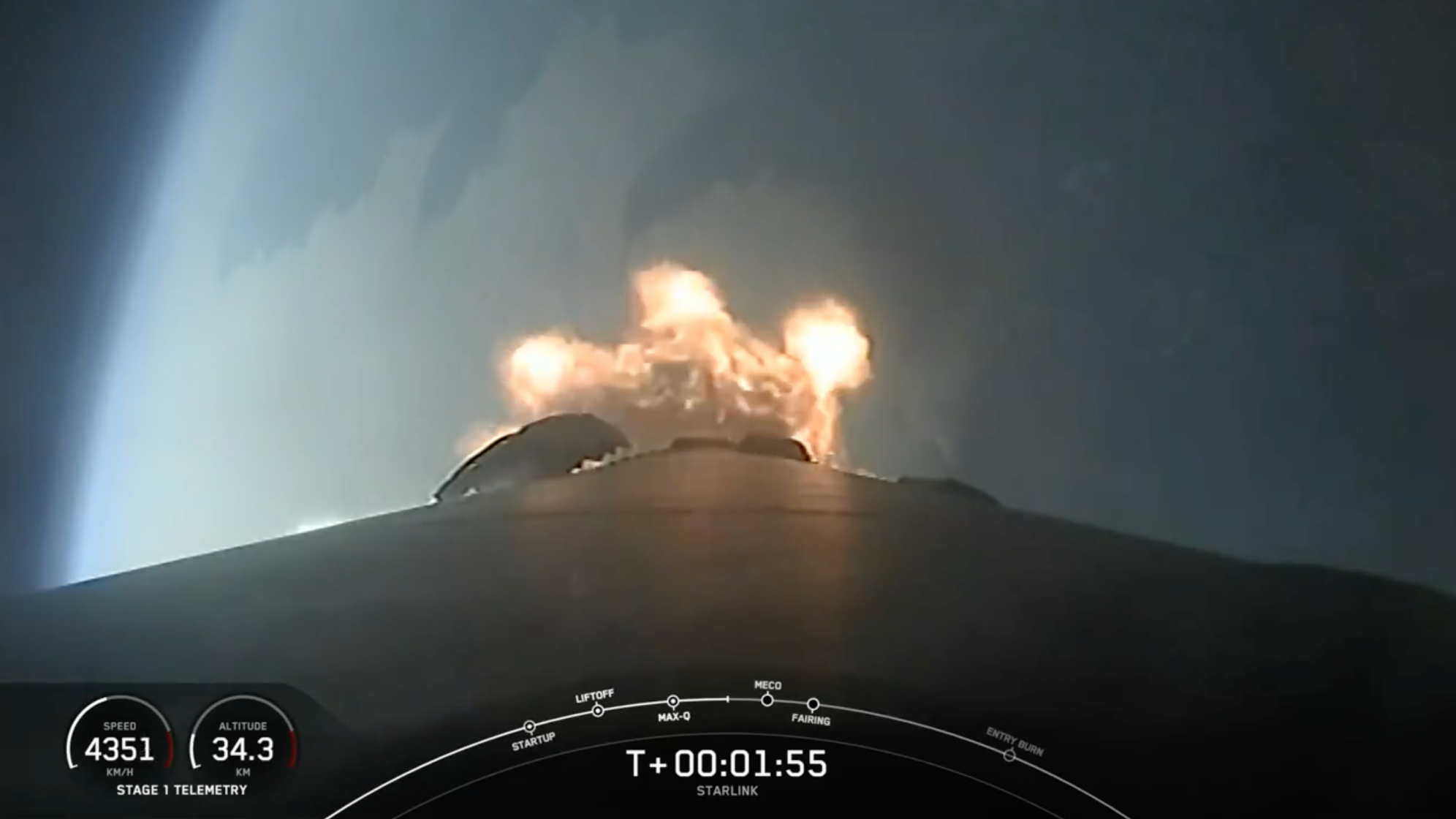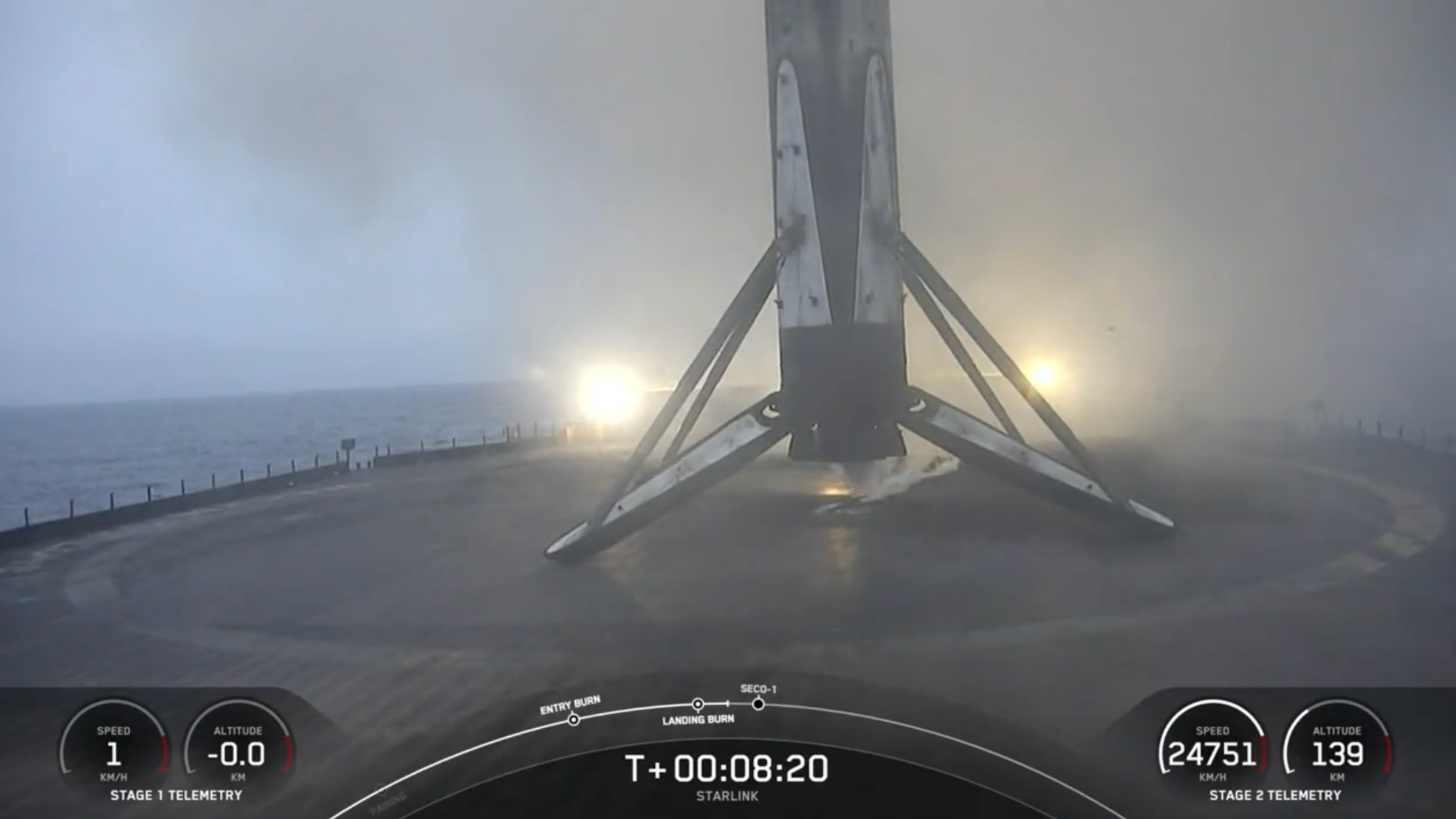
Update for 4:30 p.m. ET on July 12: SpaceX has announced that the July 11 Falcon 9 failure will lead to the loss of all 20 Starlink satellites. Read our failure story for more information.
The U.S. Federal Aviation Administration (FAA) is requiring an investigation into the recent anomaly suffered by a SpaceX Falcon 9 rocket.
The issue occurred on Thursday night (July 11), during the launch of 20 Starlink internet satellites from Vandenberg Space Force Base in California. The Falcon 9's upper-stage engine failed to complete its second burn as planned, and the spacecraft were deployed into a lower-than-intended orbit as a result, according to SpaceX.
SpaceX is looking into the nature and cause of the anomaly, under the supervision of the FAA.
"The FAA will be involved in every step of the investigation process and must approve SpaceX's final report, including any corrective actions," FAA officials wrote in an anomaly update.
"A return to flight is based on the FAA determining that any system, process or procedure related to the mishap does not affect public safety," the agency added. "In addition, SpaceX may need to request and receive approval from the FAA to modify its license that incorporates any corrective actions and meet all other licensing requirements."
Related: SpaceX Falcon 9 rocket suffers failure during Starlink satellite launch (video)
SpaceX said via X early this morning (July 12) that it had made contact with five of the 20 Starlink satellites and was trying to get them to raise their orbits using their onboard ion thrusters.
"Unlike a 'Star Trek' episode, this will probably not work, but it's worth a shot. The satellite thrusters need to raise orbit faster than atmospheric drag pulls them down or they burn up," company founder and CEO Elon Musk wrote on X in response to the SpaceX post.

Falcon 9 anomalies are incredibly rare. The workhorse rocket has launched more than 350 times since its debut in June 2010, and it has experienced just one catastrophic in-flight failure — an explosion in June 2015 that resulted in the loss of a robotic Dragon cargo capsule headed for the International Space Station (ISS).
(Thursday night's incident, though a failure, was not catastrophic, at least not in the same way; the satellites were deployed, and some of them might still make it to their intended orbit.)
The Falcon 9 is human-rated and has flown astronauts on 13 separate occasions. The rocket has two crewed launches coming up relatively soon — the private Polaris Dawn effort to low Earth orbit on July 31 and the Crew-9 mission to the ISS for NASA sometime next month.
Those target dates could slip as a result of Thursday night's anomaly, but the wait likely won't be too long, said billionaire entrepreneur Jared Isaacman, who funded and will command Polaris Dawn and did the same for the pioneering Inspiration4 mission back in 2021.
"SpaceX has an incredible track record with Falcon 9. I can say from personal experience they are very transparent when issues arise. I have no doubt they will arrive at a cause quickly and ensure the most cost-effective and reliable launch vehicle keeps delivering payload to orbit. As for Polaris Dawn, we will fly whenever SpaceX is ready and with complete confidence in the rocket, spaceship and operations," Isaacman said in an X post today.







